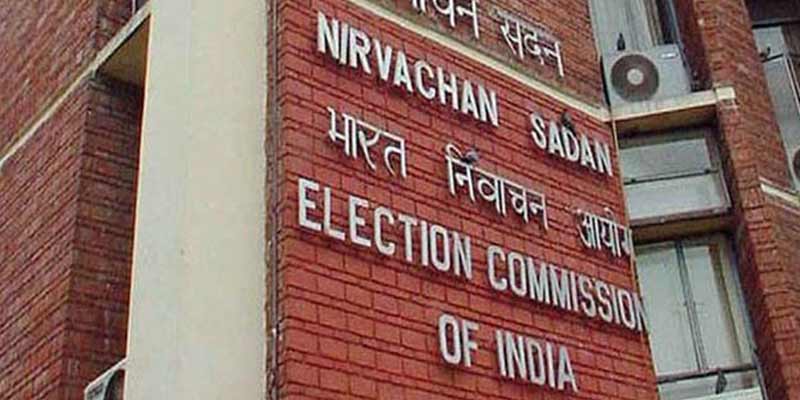- India
- Aug 11
- Sreesha V.M
EC delists 334 Registered Unrecognised Political Parties (RUPPs)
• The Election Commission has delisted 334 Registered Unrecognised Political Parties (RUPPs) which have failed to fulfil the essential condition of contesting even a single election for six years since 2019.
• In June this year, the poll authority had started proceedings against 345 such parties and finally delisted 334.
• These 334 RUPPs are from different states and Union Territories across the country.
• The offices of these parties could also not be physically located anywhere.
• Out of the total 2,854 RUPPs, 2,520 remain after the cleanup exercise.
• At present, there are six national parties and 67 state parties.
Why has the EC taken action against parties?
• The Election Commission noticed that of over 2,800 RUPPs, many failed to fulfil the essential conditions which are required to continue as an RUPP.
• Following this, a nationwide exercise was conducted by the EC to identify such parties.
• Some RUPPs were in the past seen flouting income tax laws and money laundering Act.
• In order to ensure that no party is unduly delisted, the chief electoral officers of respective states and UTs were directed to issue show-cause notices to such RUPPs.
• Political parties (national/state/RUPPs) in the country are registered with the EC under the provisions of Section 29A of the Representation of the People Act, 1951.
• Under this provision, any association once registered as a political party gets certain privileges and advantages, such as tax exemptions, amongst others.
• This exercise has been conducted with the aim of cleaning up the political system and delisting of such parties which have not contested any election to Lok Sabha or Legislative Assemblies of states/UTs or byelections since 2019 and those which could not be physically traced as well.
How is a political party recognised?
• Any Indian citizen who is more than 25 years old and is registered as a voter can contest elections even without forming a party.
• Similarly, associations can also contest elections without getting registered by the Election Commission. They, however, will not be identified as political parties and hence will not be eligible for availing of benefits under the provisions of the Representation of the People Act, 1951.
• Political parties in the country are registered with the EC under the provisions of Section 29A of the Representation of the People Act, 1951.
• There are many benefits of registering a party. Firstly, the RPA allows political parties to accept contributions voluntarily offered to it by any person or company other than a government company.
• Apart from this, candidates of registered parties get preference in allotment of election symbols. Other candidates are identified as independents and do not get preference in symbol allocation.
• Registered political parties, in course of time, can get recognition as state party or national party subject to the fulfilment of the conditions prescribed by the EC in the Election Symbols (Reservation and Allotment) Order, 1968, as amended from time to time.
• The recognition of political parties as state party and national party is governed by the provisions of 6A and 6B of the Symbols Order.
• According to the Election Commission, at present, there are six national and 67 state recognised political parties in the country.
Conditions for recognition as a state party
A political party shall be treated as a recognised political party in a state if it fulfils any of the following conditions:
i) The party has to win 3 per cent of seats in the Legislative Assembly of the state in the General Election.
ii) The party has to win one Lok sabha seat for every 25 Lok Sabha seats allotted for the state in the General Election.
iii) The party has to secure a minimum of 6 per cent of votes in a state and in addition it has won one Lok Sabha or two Legislative Assembly seats in elections.
iv) The party has to secure 8 per cent of votes in a state in General Election to Lok Sabha or Legislative Assembly.
Conditions for recognition as a national party
A political party shall be treated as a national party if it fulfils any of the following conditions:
i) Secure at least 6 per cent of votes polled in four or more states in the Lok Sabha or Assembly elections, and, in addition, it has at least four members in the Lok Sabha.
ii) It also has to have at least 2 per cent of the total Lok Sabha seats and its candidates come from not less than three states.
iii) It is recognised as a state party in at least four states.
Both national and state parties have to fulfil these conditions for all subsequent Lok Sabha or state elections. Else, they lose their status.
(The author is a trainer for Civil Services aspirants.)

